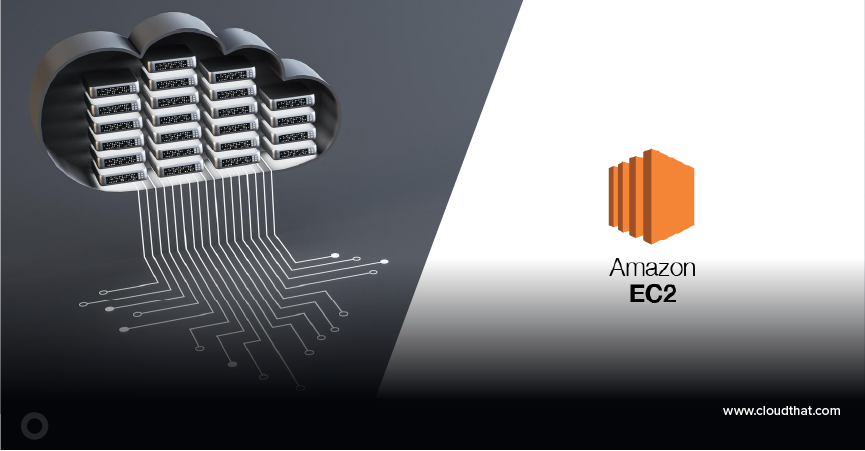|
Voiced by Amazon Polly |
Introduction
Cloud Security, which is a branch of Cyber Security, is focused on protecting cloud computing infrastructure. This includes maintaining data security and privacy across web-based platforms, infrastructure, and apps. Cloud service providers and users must work together to secure these systems, whether individuals, small- to medium-sized businesses, or enterprises, must work together to secure these systems.
Cloud security is the combination of technologies, protocols, and best practices that protect cloud computing environments, cloud-based applications, and cloud-stored data. The first step in securing cloud services is to understand precisely what needs to be protected as well as the system components that need to be managed.
Start Learning In-Demand Tech Skills with Expert-Led Training
- Industry-Authorized Curriculum
- Expert-led Training
Top 5 Reasons for Businesses to implement Cloud Security
- Protect from Cloud Security Breaches
As you no longer have complete control, data security in the cloud is crucial. For instance, you trust a third party if you decide to operate your applications on a public or hybrid cloud.
You must be cautious in this regard and ensure that your cloud computing vendor is aware of your responsibility. For long-term business prospects, it is clearly in the provider’s best interest to guarantee top-notch security, but you as the client must also go above and beyond.
- Safeguard from Disaster Recovery
Everyone is aware that any calamity can strike at any time and, if you are not well-secured, it has a major effect on your data and organization. It might be a fire, flood, or any other natural disaster that could harm your business. Your company could suffer catastrophic damage if you lose your credibility and dependability. It is vital that you are safe and that your data is safeguarded because this could cause you to experience serious damage. Cloud security systems might help to avoid such issues by offering additional services.
- Supports managing remote work
The benefits of cloud storage for data access from anywhere in the world are immense. However, this makes it crucial that your data is safeguarded and handled properly. When utilizing the public internet, for example, employees in various situations might not follow the prescribed norms. These actions put your data at risk of malware and phishing attacks and pose a security concern. These can also be avoided by using cloud storage technologies. It will be very difficult to contain the damage after the malware has entered your system, whether it be a cloud or another machine.
- Increased Access Levels
Various businesses that use cloud storage have been exposed to the public significantly, with their sensitive data. It is sufficient to claim that the leak can be unintentional, but it was also hard to completely prevent. However, it has affected their chances for economic success as well as their organization’s and their reputation in the market. Implementing cloud security is crucial for avoiding scenarios of this sort.
Cloud security systems enforce precise access limits on employees and anyone else with authorized access rights to the data. They accomplish this by granting just those users who require access to the data. The company’s data is greatly protected by this. For hackers who want to leak information or utilize it for bad purposes, this makes it much more difficult.
- Assists in adhering to rules
Companies and corporations must adhere to specific data protection requirements to continue operating legally and avoid incurring confusion among regulators. These safety requirements, like GDPR, are practically widespread. They are typically put together to ensure business integrity and uphold the security of businesses choosing cloud security. This protects the cloud security provider from liability if customer data is hacked. Because they stand to lose a lot, large financial institutions in the banking, healthcare and insurance sectors have high criteria.
Conclusion
Organizations should be aware of a few reasons stated above that they may face if they want to manage and evaluate cloud data. Security will be increasingly more important as more businesses migrate to the cloud because it will be one of the last methods for hackers to access your cloud and attack your data. Also, they must use the most recent security technologies and protocols to lessen the terrible effects of targeted security attacks.
Upskill Your Teams with Enterprise-Ready Tech Training Programs
- Team-wide Customizable Programs
- Measurable Business Outcomes
About CloudThat
CloudThat is an award-winning company and the first in India to offer cloud training and consulting services worldwide. As a Microsoft Solutions Partner, AWS Advanced Tier Training Partner, and Google Cloud Platform Partner, CloudThat has empowered over 850,000 professionals through 600+ cloud certifications winning global recognition for its training excellence including 20 MCT Trainers in Microsoft’s Global Top 100 and an impressive 12 awards in the last 8 years. CloudThat specializes in Cloud Migration, Data Platforms, DevOps, IoT, and cutting-edge technologies like Gen AI & AI/ML. It has delivered over 500 consulting projects for 250+ organizations in 30+ countries as it continues to empower professionals and enterprises to thrive in the digital-first world.
FAQs
1. What are the security aspects provided by the cloud?
ANS: – The security aspects provided by the cloud are:
- Identity management – It enables authorized users to use the product, service, or hardware component.
- Access control – Users must be granted permission for them to manage access for other users joining the cloud environment.
- Authentication and Authorization – It should be made possible for just those who are permitted and authenticated to access and modify the applications and data.
2. What are the different threats in cloud security?
ANS: – There are many threats in cloud security and a few of them are listed below:
- Malicious Insiders – The database administrators of the cloud services provider who are permitted to administer the user’s data or who have access to the data might be engaging in unlawful acts like data theft and corruption.
- Data Breaches – A data breach is a security risk associated with cloud computing where critical information is stolen or utilized by unauthorized individuals or applications.
- Insecure Application Programming Interface (API) – The APIs and interfaces that cloud providers utilize have an impact on the security and availability of generic cloud services. As the most sensitive component of the system, they put organizations at risk of several security risks. The user interface (UI) needs to be made in such a way that it can defend against both innocent and deliberate attempts to bypass or attack a system.

WRITTEN BY Anusha R
Anusha R is Senior Technical Content Writer at CloudThat. She is interested in learning advanced technologies and gaining insights into new and upcoming cloud services, and she is continuously seeking to expand her expertise in the field. Anusha is passionate about writing tech blogs leveraging her knowledge to share valuable insights with the community. In her free time, she enjoys learning new languages, further broadening her skill set, and finds relaxation in exploring her love for music and new genres.


 Login
Login


 December 7, 2022
December 7, 2022 PREV
PREV











Comments